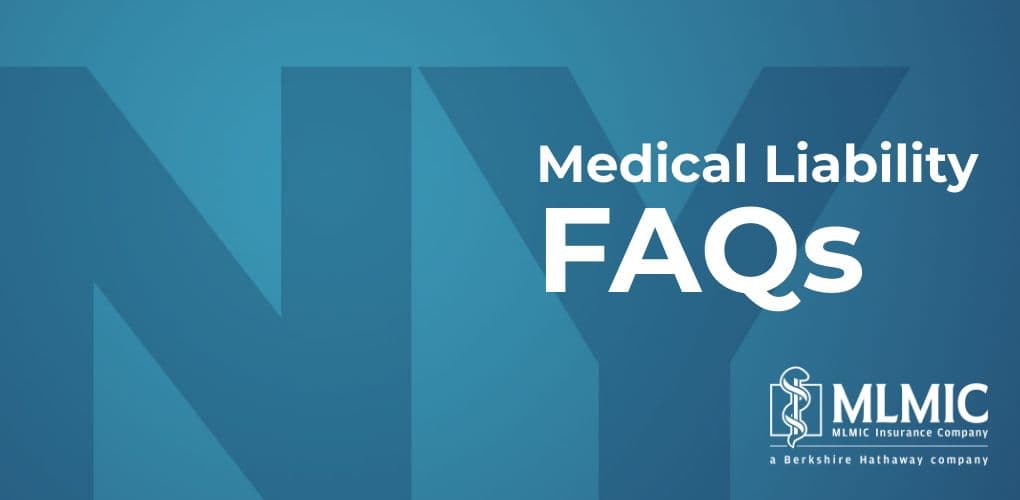< Back to Publications & Resources
Attorneys Respond to Medical Professional Liability FAQs on Hospital Related Issues

During the course of a year, the attorneys at Fager Amsler Keller & Schoppmann, LLP, counsel to MLMIC Insurance Company, handle approximately 5,000 questions from policyholders on professional liability, risk management and healthcare law. Frequently, the questions asked by healthcare professionals involve requests for legal guidance on hospital related liability.
Here, we’ve paired the FAQs on medical professional liability related to informed consent with the attorneys’ responses.
Must I comply when hospital department chairpersons, medical society grievance committees and/or health insurers ask me to put in writing an explanation about a serious complication or a response to a complaint about a patient’s care? (This request may be in addition to, or instead of, the case being discussed at a quality assurance meeting.)
There are two laws in New York State which protect the testimony and minutes of quality assurance discussions—these are Section 6527(3) of the Education Law and Section 2805-m of the Public Health Law. Both laws protect the discussions of others, but exempt from protection, and, in fact, permit disclosure of, your testimony or discussions when you are, or become, a defendant in a suit involving a patient’s care. Therefore, when a serious event occurs and a patient is injured or dies, you must be very careful about responding to such requests. We recommend calling your attorney before you respond.
A case in the New York State Courts, Appellate Division Fourth Department, held that a letter written by a physician to a medical quality assurance review committee, at the request of the hospital’s Chief of Staff, was not protected from disclosure. In other words, the statute was not intended to protect persons whose care and conduct are the subject of review. This applies to both verbal and written statements given by you to a quality assurance committee or other such reviewers.
Should I write an addendum to hospital or office medical records many days, weeks, or months after a patient has been injured or died? Sometimes I have been requested to do so by hospital personnel, or I have forgotten to document certain important information prior to a patient’s injury or death.
The general rule is that an addendum should be timely and should contain information relevant and necessary to the patient’s present and/or future care and treatment. Never write an addendum weeks or months after a patient has died or after an attorney has requested records. Any addendum that does not meet these criteria may be considered self-serving or even deemed an alteration of the record. If it is necessary to write an addendum to a patient’s record, be sure to indicate the date of and reason for the supplementary information.
Remember that accurate recordkeeping is vital, not only in the course of providing good patient care, but also because carefully maintained records offer a credible and accurate defense in court. Any record that appears to have been altered for the purpose of covering up an error, or to improve the record for litigation, completely lacks credibility.
If a physician extender (e.g. such as a nurse practitioner), who has been hired by the hospital or by me, injures a patient, can I be held liable for his/her acts, even if I have not seen the patient?
There is a duty imposed upon you by law to provide supervision to nurse practitioners and other physician extenders, albeit, not necessarily on the premises. You may also be found vicariously liable for the acts of that individual, merely because of your employer/employee and/or supervisory relationship. Your professional liability policy should have specific supervisory requirements for physician extenders who are your employees. Consult with your attorney regarding the legal requirements for supervision.
The attorneys of Fager Amsler Keller & Schoppmann, LLP (FAKS) perform thousands of hours of professional liability services per year. They are uniquely qualified to assess medical-legal issues and provide counsel to minimize liability exposure. MLMIC policyholders can reach 24/7 legal support services by calling (855) FAKS-LAW or emailing hotline@FAKSLAW.com. For more information about these services, offered exclusively to MLMIC policyholders, visit our web page on Legal 24/7.



